
Adavance Data Analytics Certification
All Delivery Methods Available: Yes
Data Analytics is the method of examining datasets to find trends and draw conclusions about the information they contain. The main purpose of data analytics is to discover useful information, draw conclusions, and assist in decision making. Data Analytics is essential for businesses to optimise their performance by implementing it into their business model and also reducing costs by recognising efficient ways of doing business. Our Data Analytics courses will equip the learners to assist a firm in making better business decisions and assessing consumer patterns and satisfaction, leading to the development of finer products and services. The course syllabus is specifically designed to help learners acquire skills for how to set achievable goals in the business field. Our experienced trainer will conduct interactive training sessions that will enable organisations to gain real-time insights on sales, marketing, finance, and product development.

All Delivery Methods Available: Yes












Data visualisation is the depiction of data using conventional images such as charts, plots, infographics, and even animations. Data visualisation analysts are largely responsible for determining useful, actionable insights for decision-makers via visualisation reports. The tools and technologies used in data analytics are essential in the Big Data age for analysing huge volumes of data and making data-driven choices. Data visualisation techniques make it easy to identify and comprehend trends, outliers, and patterns in data by employing visual components like charts, graphs, and maps.
Data mining is a systematic method used to create machine learning models that are further used by Artificial Intelligence (AI). A Data Mining analyst understands and selects data that is helpful to the company and use it to generate business activities. They find the important uncovered patterns, rules, and data throughout a big dataset. It enables organisations to create innovative strategies and generate revenue. Data mining helps to extract data from various primary and secondary sources as well as organises it in a particular format that can be easily approachable.
Collaboration across various departments and teams is critical to a company's success. It leads to distributed work, offers analysts with proper tools, as well as keeps data updated and organised, which speeds up the data analysis and cleansing process. A Data Analyst is responsible for collaboration with other teams to prepare data for ML engineers, data scientists, and other software development teams to create ML-based automated software. They enable the organisation to synchronise with the development teams to convey crucial information regarding data.

Data analysis and levels assist company owners in not just collecting data but also managing and implementing it to improve their operations. It also helps entrepreneurs successfully handle semi-structured and unstructured data to apply it for proficient business growth. With this level of data analysis level, individuals can focus on business outcomes and the actions and decisions that enable them to work productively. Following are the three levels of data analysis:
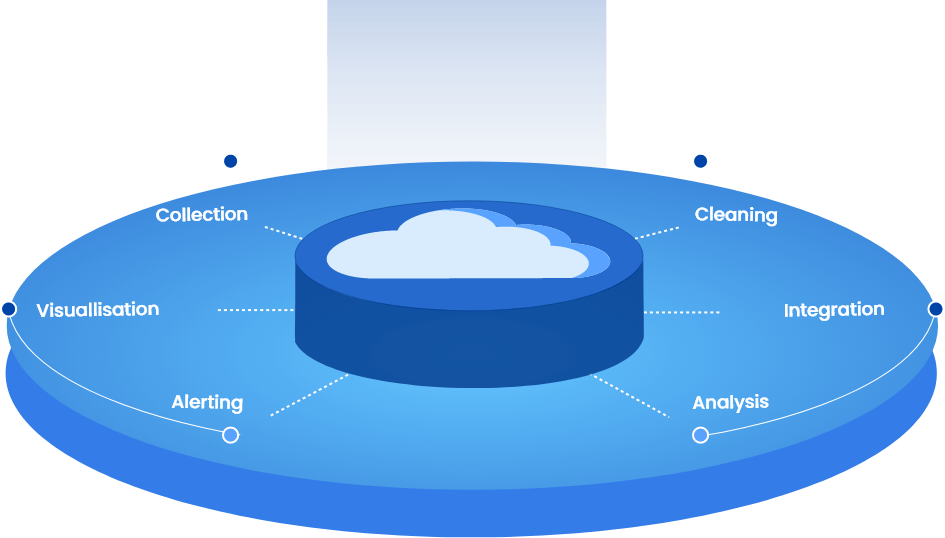
During this cyberspace age, the importance of the data analyst has grown rapidly, with job options spanning from banking to marketing to social media. A data analyst is appointed with the purpose of assisting businesses in making better decisions. They must be well-versed in statistical methodologies and models, in addition to understanding how to use computers efficiently. The top three skills required to be a successful data analyst are:

You won't find better value in the marketplace. If you find a lower price, send us the offer, and we'll beat it.

Our support staff and instructors have years of experience in meeting the specific needs of our clients and delivering exceptional quality.

We have 2K+ certified instructors who have years of experience in their respective domains. They will provide the learners with desired skills and knowledge to achieve their desired outcomes.

Our training courses are 100% guaranteed to run on dates provided, whether they are classroom, virtual, or in-house.

Courses Running Daily

Locations Worldwide

Professionals Trained

Certified Instructors
Data Analytics refers to the qualitative and quantitative techniques and procedures that are used to improve productivity and proficiency in businesses. The data can be used to upgrade the procedures and boost a company's or system's overall efficiency. Companies are enabled to cut costs by developing numerous efficient ways of doing business and storing large amounts of data by incorporating it into their business strategy. It also helps organisations to make effective business decisions and analyse customer satisfaction and trends, which leads to new and better services and products. Marketing teams use data analytics to acquire greater insight into how to make their firm more relevant and establish themselves in crowded marketplaces.
The benefit of inaugurating big successful plans for the business can lead to:

Big Data empowers businesses to gain insight into customer beliefs and preferences.
Enquire Now

Data Analytics improves business efficiencies and leads to faster innovation cycles.
Enquire Now

A career as a data analyst can lead to a range of intriguing opportunities, such as data science, management, consulting, or specialty. When you gain experience as a data analyst, you can get the opportunity to advance your career in different field such as move on to data science, management, consulting, or a specialised data role depending on your goals and interests.

Data analytics capabilities assist business plan to increase 76% in the next two years.

Data scientist in 2020 has increased their demand over 50% average across industries.

Data science jobs are going to increase by -28% through 2026.
 Business Intelligence and Reporting
Business Intelligence and Reporting
 Predictive Analytics
Predictive Analytics
 Data Visualisation
Data Visualisation
 Geospatial and Location Analytics
Geospatial and Location Analytics

 Data Wrangling/Data Preparation
Data Wrangling/Data Preparation
 Machine Learning
Machine Learning
 Streaming Analytics
Streaming Analytics
 Business Intelligence and Reporting
Business Intelligence and Reporting
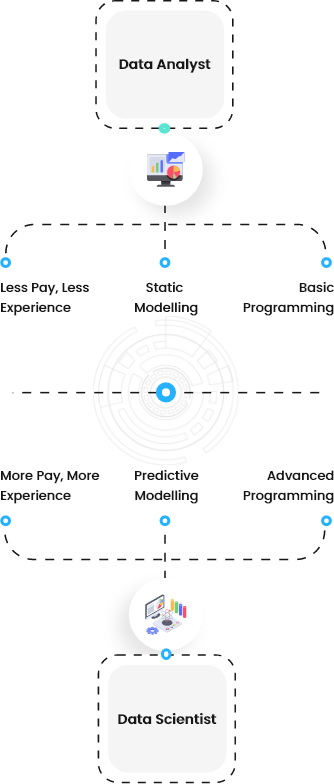
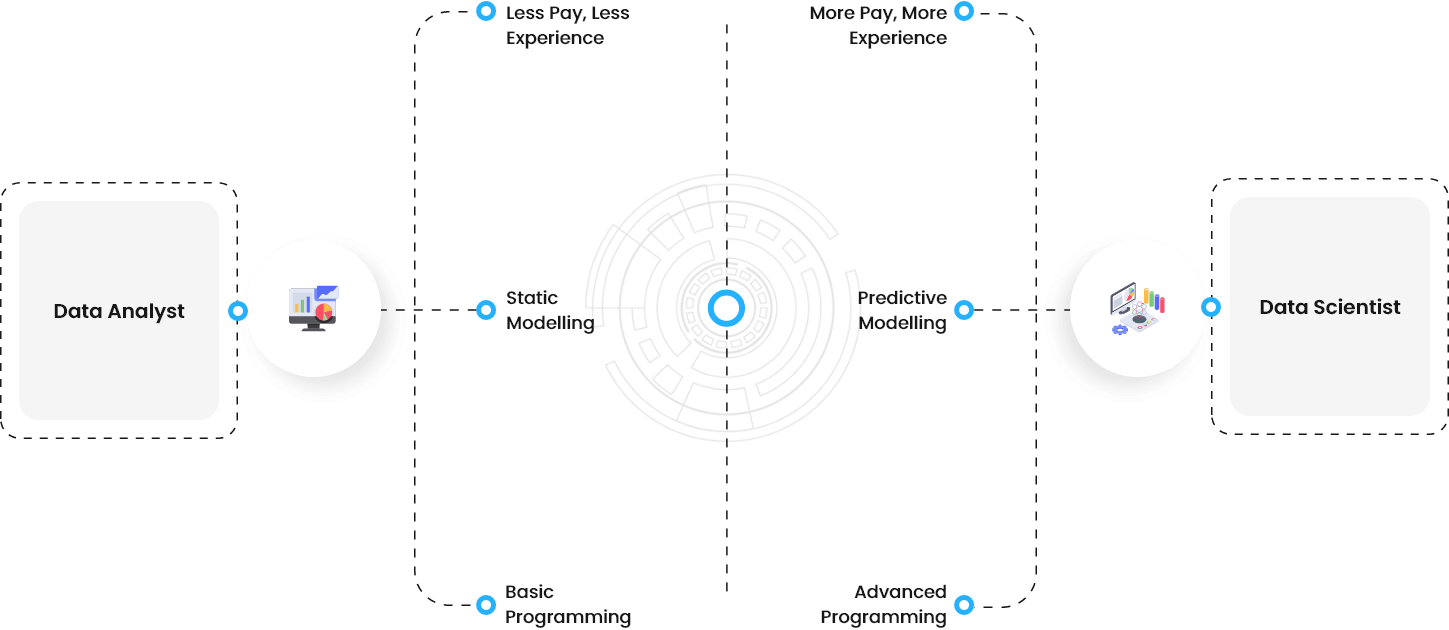
Data Science, Artificial Intelligence (AI), and Big Data are the key trends in today's fast-paced markets where data derives organisations in endless magnificent ways. The data analytics sector is booming tremendously as more companies are using data-driven models to enhance their business operations.

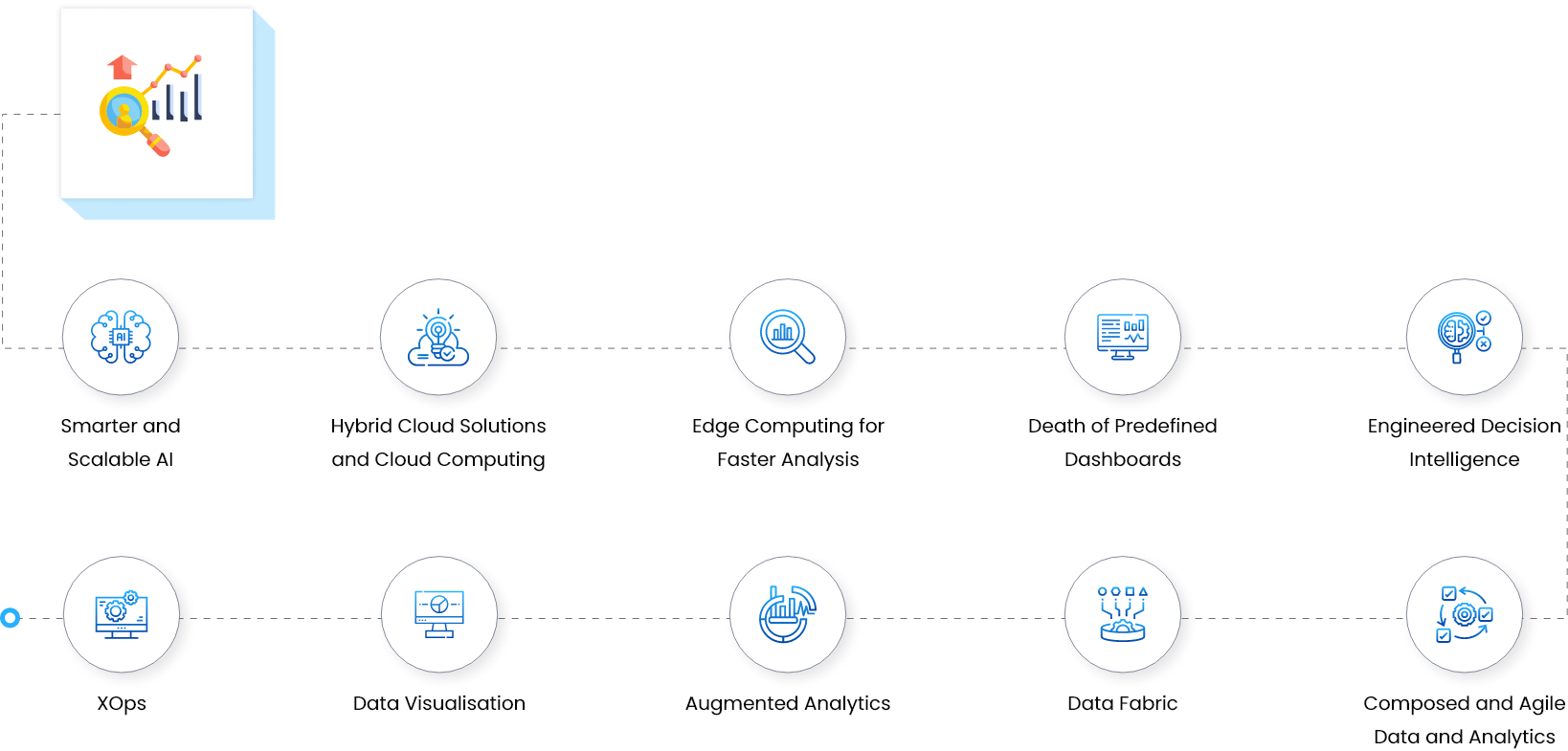
The data analysis industry is extremely useful for economic growth and is used in various fields. Data analytics helps organisations in collecting data and identifying patterns in the data. The non-IT sector has great potential for data analytics engineers in the future. The newly discovered approach of using data analysis and AI has led to the development of innovative solutions to different problems in different non-IT disciplines. The data analytics industry offers multiple benefits, helping businesses to collect data and deliver highly efficient products and services. The major scope of data analytics is:
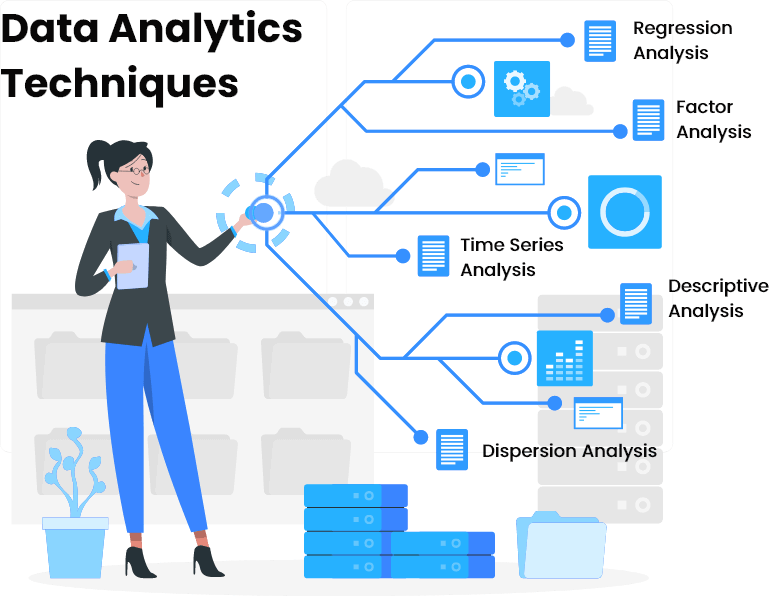

I purchased data analytics training via the virtual instructor-led method from the knowledge academy and got a great deal on it. The course ran smoothly with my trainer, Alaya, as she was really experienced and knowledgeable. She taught all the concepts and techniques very patiently with practical examples. She also cleared up all the doubts and queries we had during the course. I would highly recommend this course to everyone.

I opted for the Data Analytics training. The knowledge academy provided good support and a prompt response throughout the training process, from booking to delivery. The training ran at a good pace with a trainer named Laurie. She was an accommodating and experienced trainer with a good understanding of various techniques and technologies of data analytics. I will recommend this training provider and trainer to everyone.

I bought Data analytics course and got a good discount on my required training session. The course material was excellent, presented effectively, and explained in detail by my tutor. Therefore, I understood everything quickly. I was also very impressed by the service and the coordination of my trainer during this course. Thanks to the knowledge academy! I will definitely recommend this course to my friends and colleagues.

I had a great time attending the data analytics training from the knowledge academy. Everything about the course was perfect. The content was easy to grab, and the trainer clarified all my doubts. My trainer Samson was very professional and taught everything very well. I appreciate the trainer as he was very expert in his delivering the perfect content. I will recommend this training to everyone who wants to get familiar with data analytics procedures. Thank you.

I completed the knowledge academy's Data Analytics and found it to be extremely informative. The course material was well-organised and simple to comprehend, and I had no issues with it. They also assigned me a professional trainer, whose explanations were clear and helpful in understanding the subject. Based on my positive experience, I would strongly recommend this course to anyone looking to improve their technical arena in data analytics.

I recently completed a Data Analytics training. This training concisely covered a lot of ground reality examples and was delivered on time, with excellent course content. Felix, our instructor, was very knowledgeable and provided many examples. He was really passionate about teaching the concepts and explained each topic with an appropriate example to help us grasp the material quickly. Overall, I had a fantastic time.

I recently finished a masterclass on data analytics with a trainer named John. He was friendly and helpful. John also helped me out during the whole training and patiently answered my questions. The course material was well-designed, and he helped me understand various complex topics. For this beautiful experience, I am grateful to my trainer John and the Knowledge Academy.

The knowledge academy provided excellent guidance and helped me to attend Data analytics brilliantly. In addition, Albert was an excellent instructor for the course. His teaching style was very effective as he provided us with suitable examples. He answered most of the queries I had during the training and made sure that I understood each topic quickly. I will surely recommend this training provider to everyone.


Data analysis is a process of transforming, cleaning, and modelling data to find usable information for taking business decisions. Its goal is to extract usable information from data and make decisions based on analysis of data.


Text analysis, statistical analysis, diagnostic analysis, predictive analysis, and prescriptive analysis are the types of data analysis on the basis of business and technology.


Data requirement gathering, data collection, data cleansing, data analysis, data interpretation, and data visualisation are the different phases of data analysis process.


Individuals who hold Advanced Data Analyst skills will get higher ranks in companies and get paid more than an average Analyst.


Yes, we have subject matter experts who will work according to your company’s requirements.